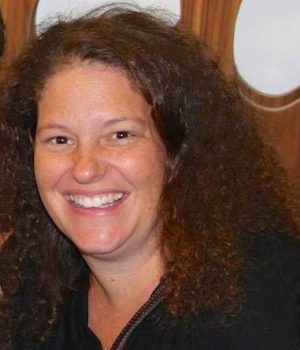UPDATE, 9:20 pm, October 23: The proposal was unanimously approved by the Public Protection and Judiciary Committee on Tuesday, 7-0, and will now be considered by the Personnel Finance Committee at its meetings on October 29 and 30.
A proposed amendment to the 2019 Dane County budget would end the practice of making families pay to house their children in County’s juvenile detention center.
The amendment is one of 11 proposals up for votes in the Public Protection and Judiciary Committee tonight at 5:30 pm.
“I was not aware that we did this,” said Supervisor Carousel Bayrd, the lead sponsor of the amendment. “And many other county board supervisors that I’ve spoken to had no idea.”
Currently, the County charges families a daily fee for any time their children spend in County care, which includes shelters, group homes, foster care and juvenile detention. The base fee for juvenile detention is $130 per day, but it’s charged on a sliding scale and fee waivers are available — but the paperwork to get the waiver can be “overwhelming,” especially among all the other paperwork that accompanies a court appearance, said Bayrd.
Bayrd said many families simply don’t pay, and their bills end up in collection, which can have long-lasting negative effects.
“Some people (said), ‘We need to figure out how to get those people to respond to the waiver and … work with them and not make them intimidated by the paperwork,’ and I said, ‘Or we could just not charge anyone,’” Bayrd said.
Bayrd said in 2017, 417 youths spent at least some time in detention, usually awaiting court proceedings. She said 73 percent of those were youth of color.
Bayrd’s amendment, which is co-sponsored by Supervisors Kelly Danner, Paul Rusk, Shelia Stubbs, Yogesh Chawla and Huan Nguyen-Hilfiger, would cost the county $18,000 – the amount the county actually expects to collect.
The County does not charge adults for the time they spend in the Dane County Jail.
Bayrd said some members of the Public Protection and Judiciary Committee expressed concerns in discussions earlier this month.
“Some concern was the need to hold parents accountable for their children’s actions,” Bayrd said. “Some of the concern was that this was a slippery slope, and if we didn’t charge when we incarcerate youths, how far is that from not charging when youth are in foster care? I think both of those arguments are disingenuous.”
Other members of the committee did not return messages seeking comment Monday.
Bayrd said she expects the proposal to pass the committee vote.
“We shouldn’t be charging families when their child gets incarcerated,” she said. “For me it’s pretty straightforward.”










